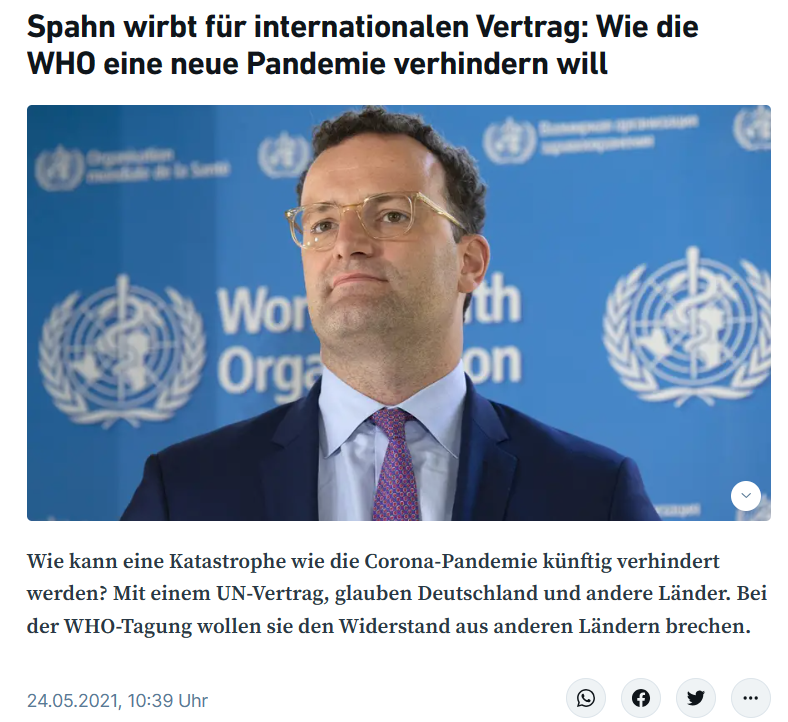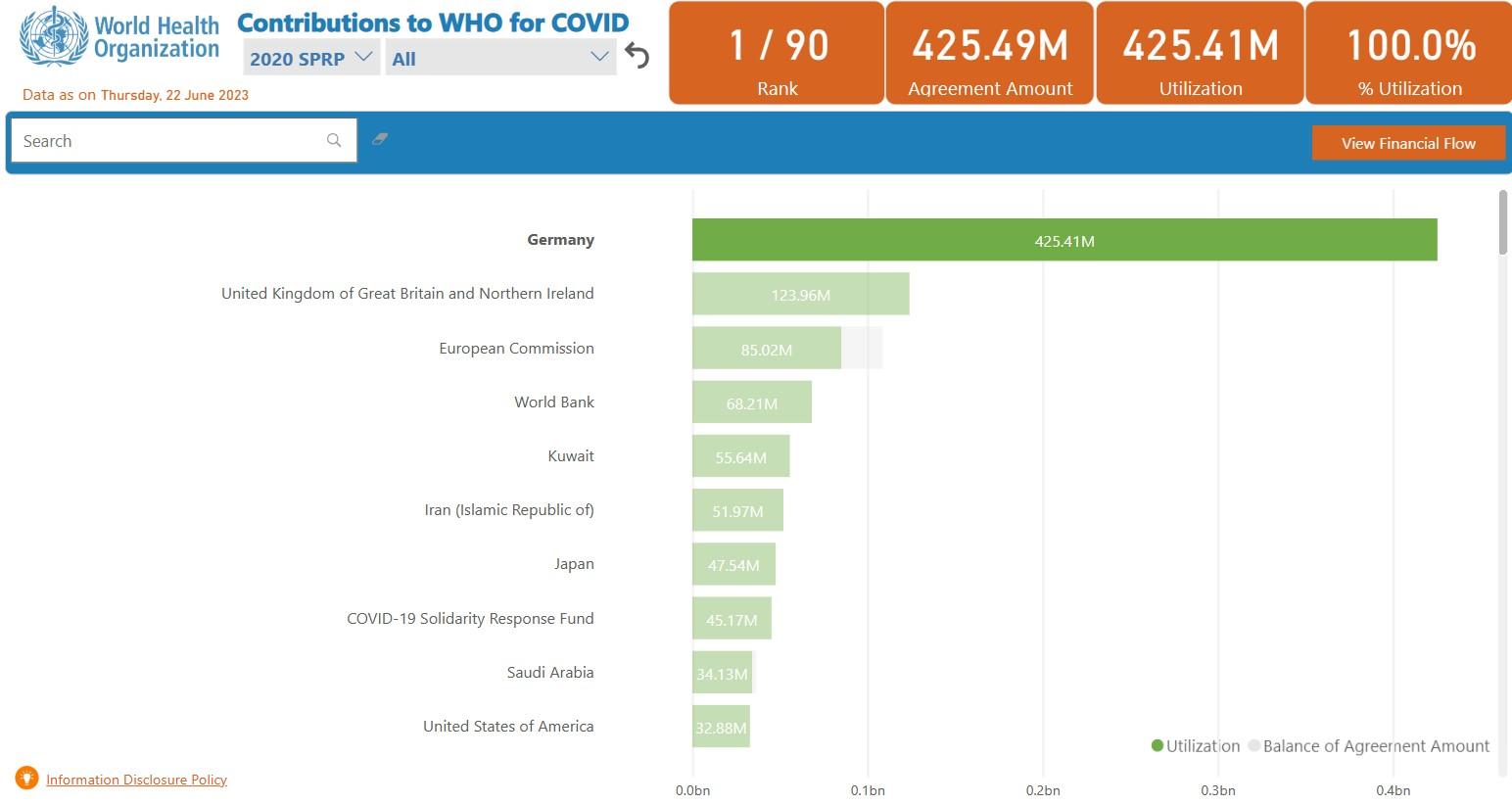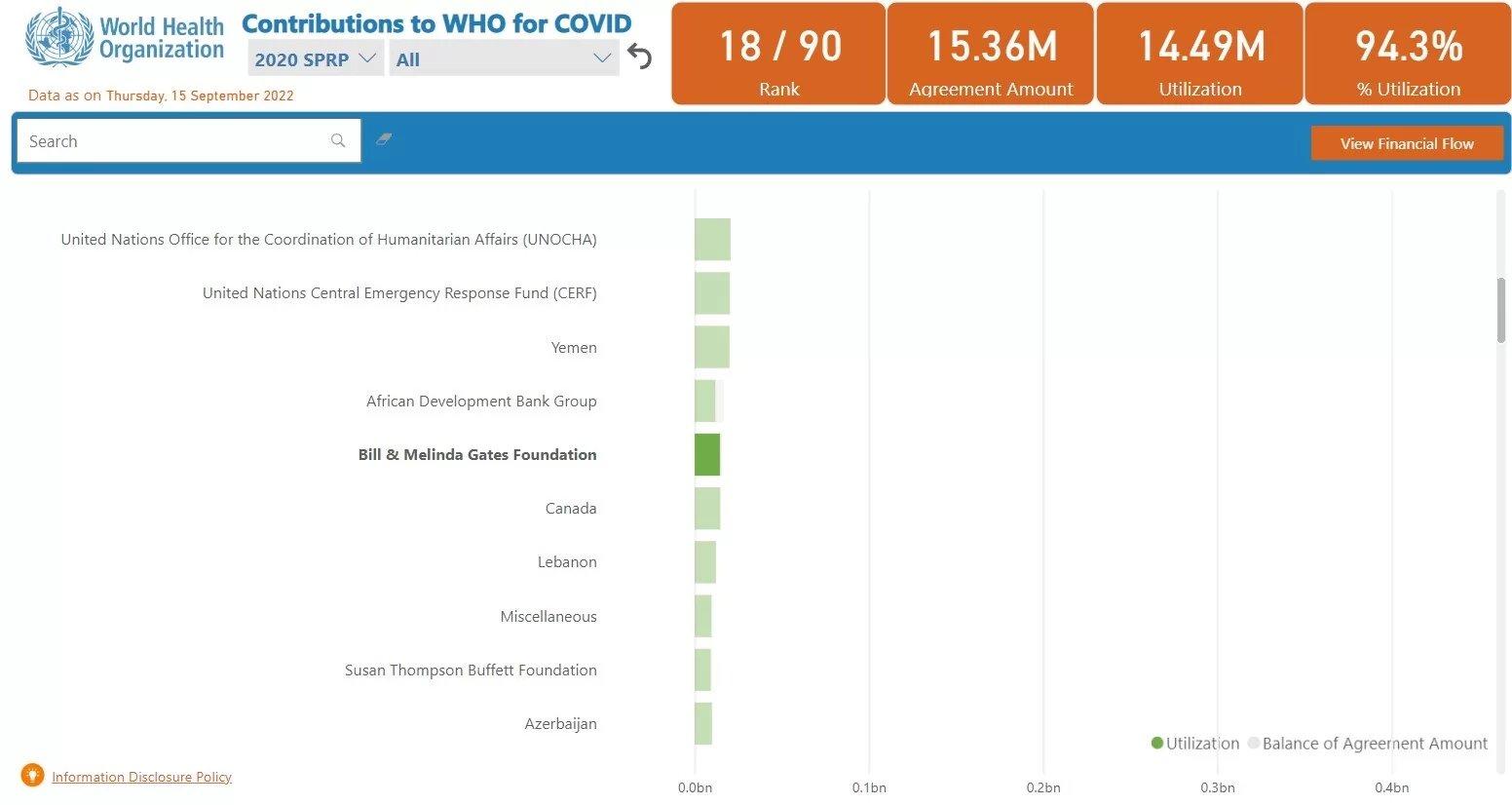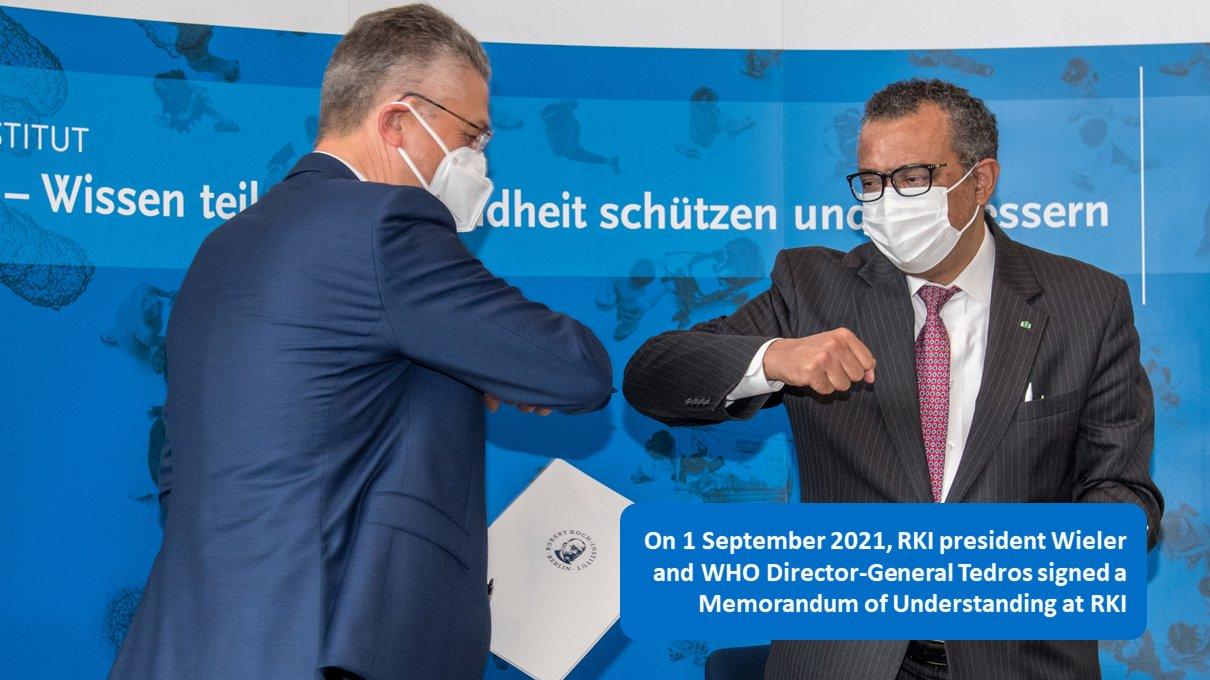The German Origins of the Pandemic Treaty
With the WHO hurtling towards adoption of the ‘Pandemic Treaty,’ as well as revisions of its International Health Regulations (IHR) which some knowledgeable observers regard as even more consequential, the predominant theory among opponents appears to be that the changes will consolidate the power of the WHO bureaucracy and hence of private interests which allegedly control the latter.
But, prima facie, the theory makes little sense. The WHO is, after all – like, say, the UN or the WTO – an international organization, in which negotiations take place among member-statesand decisions are made by them. Private sources can contribute as much funding as they like, and this may well give them influence, but it will not give them a seat at the negotiating table or a vote. Without precise state sponsorship, a project like the Pandemic Treaty and the related revisions of the IHR could not even get off the ground.
And, lo and behold, if we go back far enough – before hardly anyone will have ever even heard the expression ‘pandemic treaty’ – we discover that the treaty did indeed have a state sponsor and that, unsurprisingly, the state in question is the very same state which, if albeit unbeknownst to the broader public, was the driving force behind the WHO’s Covid-19 ‘pandemic response:’ namely, Germany.
Thus, referring to then German Minister of Health Jens Spahn, the headline of a May 24, 2021 report from Germany’s DPA wire service reads: ‘Spahn Pushes for International Treaty: How the WHO Wants to Prevent a New Pandemic.’

But the article is not in fact about how the WHO wants to prevent a future pandemic, but rather about how Germany wants the WHO to prevent a future pandemic. Thus, the accompanying blurb reads: ‘How can a catastrophe like the Corona pandemic be prevented in the future? With a UN treaty, Germany and other countries believe. At the WHO meeting, they want to break the resistance of other countries.’
The article goes on to narrate how Germany and its allies wanted to use the WHO’s annual assembly, which was being held remotely that year and which began on that very day, in order to ‘fire off the starting pistol for an international pandemic treaty.’
And so it would come to pass.
By the end of the yearly event, a few days later, then German Chancellor Angela Merkel and a somewhat ragtag band of two dozen other world leaders would publish a joint statement calling for the conclusion of a pandemic treaty. The signatories included many frankly minor figures like the prime ministers of Fiji and of Trinidad and Tobago, as well as heads of international organisations – like none other than WHO Director-General Tedros – but also somewhat weightier figures like then British Prime Minister Boris Johnson and French President Emmanuel Macron.
‘States have to commit to cooperating and to the implementation of jointly established rules’, Spahn told the DPA. ‘So as not to remain at the level of pious wishes,’ the article continues,
A legally binding treaty is planned: whoever takes part has to abide by it. A form of compulsion is supposed to come into being: practically only rogue states could then afford not to cooperate and they would have to count on international condemnation.
Speaking of private versus state interests, by this time, in mid-2021, Germany had shot past the Bill & Melinda Gates Foundation to become the WHO’s largest funder, nearly quadrupling its contribution overnight in a funding effort which the DPA report explicitly links to its desire to lead the world in pandemic prevention and response. Germany’s contribution thus reached nearly $1.15 billion for the 2020-21 funding period (as can be seen here).
All of the additional funding was, of course, voluntary (Germany’s assessed contribution as member state represented a mere 5 percent of the total), and nearly all of it was earmarked precisely for the WHO’s Covid-19 response budget. As in previous years, the bulk of Gates Foundation funding, by contrast, continued to be devoted to polio eradication. (See flowchart here.)
Thus, more to the point, if Germany’s total contribution to the WHO budget easily surpassed that of the Gates Foundation, its specific contribution to the Covid-19 response budget dwarfed that of the Gates Foundation. The below graphs generated from the WHO database clearly illustrate this fact for 2020, with Germany’s $425 million contribution leading the pack by a wide margin and the Gates Foundation’s mere $15 million trailing even the likes of Yemen!

…

In 2021, Germany would continue to lead the pack, with the European Commission, under former German Minister of Defence Ursula von der Leyen, now upping its game and finishing (a distant) second. The combined pledges of Germany ($406 million) and the Commission ($160 million) would represent around half of the WHO’s total Covid-19 response budget. The Gates Foundation contribution would fall to just $10 million. (See the WHO database here, selecting ‘SPRP 2021,’ and for further discussion, my earlier article here.)
Moreover, Germany was not only massively funding the WHO’s Covid-19 response. It was also uniquely well-positioned within the organisation to influence the development of the Pandemic Treaty and the revisions of the International Health Regulations.
Thus, the DPA report notes that ‘a WHO expert commission led by Lothar Wieler, the head of the Robert Koch Institute,’ had recommended the quick dispatch of ‘crisis teams’ to the area of a ‘pandemic outbreak.’ This procedure is supposed to be ‘anchored in the treaty,’ i.e. to be mandatory whether a country wants to receive such ‘crisis teams’ or not.
A commission led by Lothar Wieler, the head of the Robert Koch Institute? The Robert Koch Institute (RKI) is none other than the German public health authority. Wieler’s leading such a commission is as if Rochelle Walensky would lead a WHO expert commission while still heading the CDC or, say, Anthony Fauci would lead a WHO expert commission while still heading NIAID.
Wieler, who has since stepped down from his position as head of the RKI, chaired the WHO’s ‘Review Committee on the Functioning of the International Health Regulations during the COVID-19 Response,’ which undoubtedly played a key role in developing the proposed revisions of the IHR. This is perhaps the commission to which the DPA report is referring.
Wieler is also a long-time champion of the so-called ‘One Health’ approach, focusing on ‘zoonotic’ or animal origins of human diseases, which is at the very heart of the proposed pandemic treaty. (See the ‘zero draft’ here and the Wieler-edited volume here.) Wieler is a veterinarian, incidentally.
As further evidence of Germany’s commitment to ‘pandemic prevention,’ the DPA report also points to a German government grant of €30 million to the WHO to create a ‘pandemic early warning centre’ in Berlin. The €30 million would become $100 million and the ‘early warning system’ would become the Hub for Pandemic and Epidemic Intelligence, which was inaugurated in Berlin – just three months later! – on September 1, 2021, by Chancellor Merkel and WHO Director-General Tedros.
Although the hub is commonly described as a WHO centre, it is in fact run as a full-fledged partnership between the WHO and none other than the German public health authority, the RKI. On that same September 1, 2021, Wieler and Tedros marked the creation of the partnership with a celebratory elbow-bump, as can be seen in the below picture taken from the RKI tweet here.

Author
Robert Kogon is a pen name for a widely-published financial journalist, a translator, and researcher working in Europe. Follow him at his Twitter here. Robert Kogon also writes at edv1694.substack.com.
View all posts


No comments:
Post a Comment